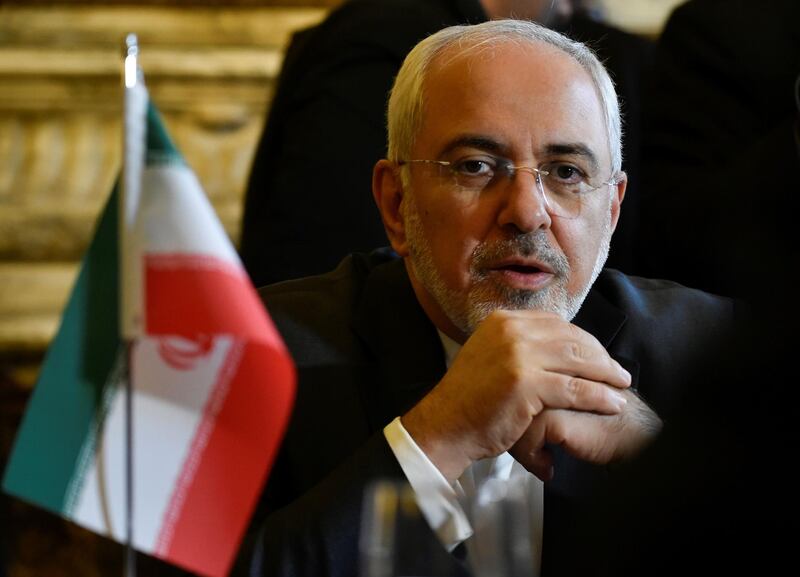Iran said on Saturday it would retaliate against new sanctions imposed by the United States after president Donald Trump set an ultimatum to fix "disastrous flaws" in a deal curbing Tehran's nuclear programme.
Trump said on Friday he would waive nuclear sanctions on Iran for the last time to give the United States and European allies a final chance to amend the 2015 pact. Washington also imposed sanctions on the head of Iran's judiciary and others.
Russia — one of the parties to the Iran pact alongside the US, China, France, Britain, Germany and the European Union — called Mr Trump's comments "extremely negative".
The ultimatum puts pressure on European countries to satisfy Mr Trump, who wants the pact strengthened with a separate agreement within 120 days.
While approving the waiver on US sanctions related to the nuclear deal, Washington announced other sanctions against 14 Iranian entities and people, including judiciary head Ayatollah Sadeq Larijani, a close ally of Iran’s supreme leader, Ayatollah Ali Khamenei.
_____________
Read more:
EU foreign ministers to discuss nuclear deal with Iran’s Zarif
Opinion: Trump won't advance a coherent foreign policy through constant disruption and personal volatility
_____________
Describing sanctions against Ayatollah Larijani as "hostile action", Iran's foreign ministry said the move "crossed all red lines of conduct in the international community and is a violation of international law and will surely be answered by a serious reaction of the Islamic Republic", state media reported.
It did not specify what any retaliation might involve.
Iran's foreign minister, Mohammad Javad Zarif, had earlier said on Twitter that the deal was "not renegotiable" and that Mr Trump's move "amounts to desperate attempts to undermine a solid multilateral agreement".
Trump's policy & today’s announcement amount to desperate attempts to undermine a solid multilateral agreement, maliciously violating its paras 26, 28 & 29. JCPOA is not renegotiable: rather than repeating tired rhetoric, US must bring itself into full compliance -just like Iran.
— Javad Zarif (@JZarif) January 12, 2018
Iran says its nuclear programme has only peaceful aims and that it will stick to the accord as long as others respect it. But it has also said it will "shred" the deal if Washington quits.
Mr Trump, who has sharply criticised the deal reached in Barack Obama's presidency, had chafed at having to once again waive sanctions on a country he sees as a threat in the Middle East.
"Despite my strong inclination, I have not yet withdrawn the United States from the Iran nuclear deal," Mr Trump said, adding that the options were to fix "the deal’s disastrous flaws, or the United States will withdraw".
"This is a last chance," Mr Trump said, pushing for a separate agreement and saying the US would not waive sanctions again to keep Iran in the pact without such an agreement.
Russian deputy foreign minister Sergei Ryabkov called Mr Trump's remarks "extremely negative", according to state news agency Ria.
"Our worst fears are being confirmed,” he said.
The EU said it had taken note of Mr Trump’s decision and would assess its implications. "It's going to be complicated to save the deal after this," said one European diplomat.
Britain, France and Germany had called on Mr Trump on Thursday to uphold the pact.
Senior US administration officials said Mr Trump would work with Europeans on a follow-on deal to enshrine triggers that the Iranian government could not exceed related to ballistic missiles.
Republican senator Bob Corker said "significant progress" had been made on bipartisan congressional legislation to address "flaws in the agreement without violating US commitments".





